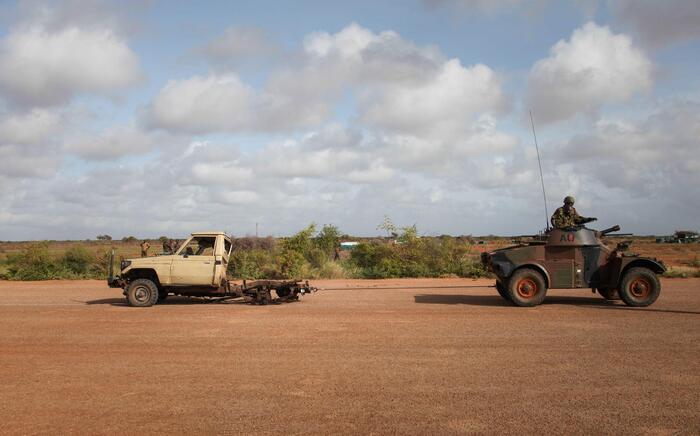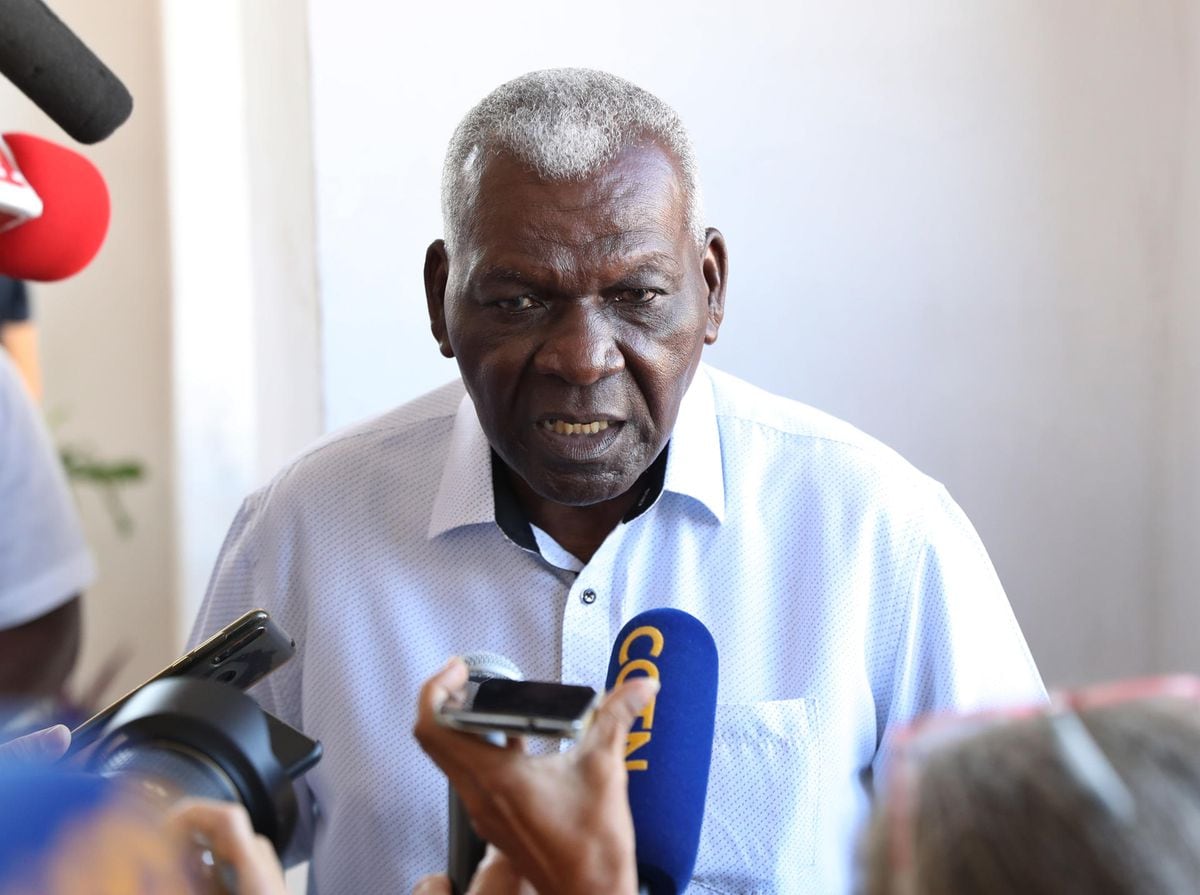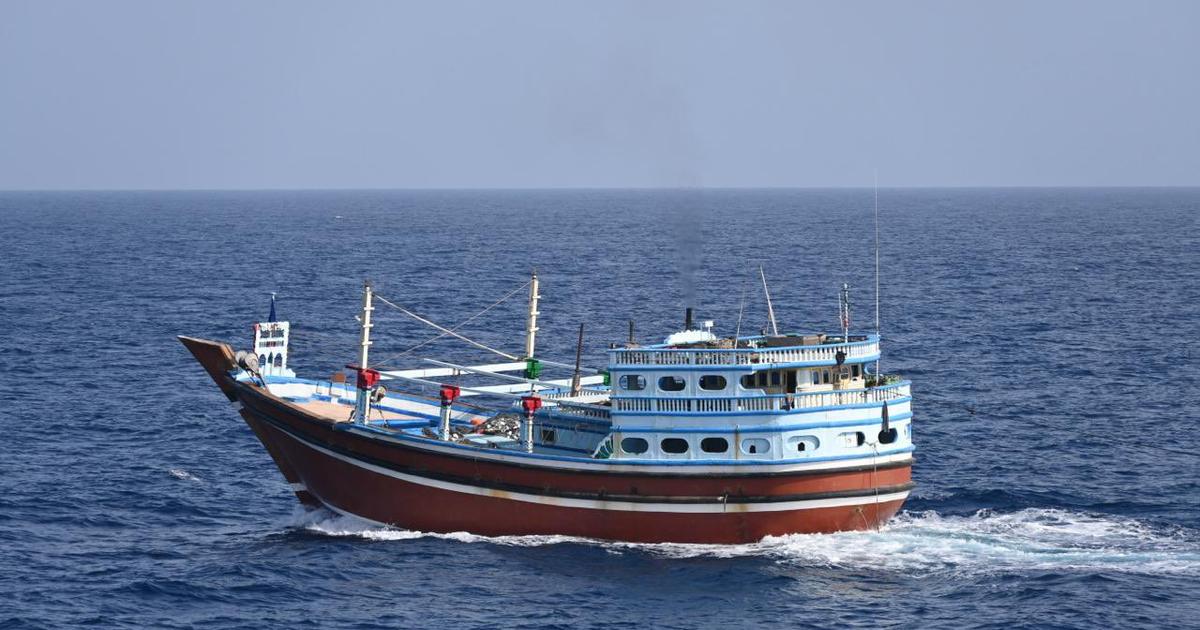A Kenyan Armed Forces ship near the Somalia border (archive photo)
Photo: THOMAS MUKOYA / REUTERS
It is about sovereignty over a good 100,000 square kilometers of ocean; an area larger than Bavaria and Hesse put together, in which considerable oil and gas reserves are suspected. Kenya and Somalia have been fighting over the course of their maritime borders for years. The conflict not only affects the relations between the two East African neighbors and potentially affects the stability of a volatile part of the world. It could also be relevant to the question of how numerous other maritime borders are drawn, in Africa and beyond.
Kenya insists that the maritime border should be drawn parallel to the latitude, starting from the border point on the coast.
Somalia, on the other hand, is pushing for it to run south-east, as it were as an extension of the last stretch of land border between the two countries.
In 2009, the countries agreed in a memorandum to settle the issue through negotiations.
Five years later, Mogadishu took the dispute to the International Court of Justice in The Hague, reportedly because Somalis believed that Kenya was not seriously involved in the proposed negotiations.
A long awaited verdict - which Kenya rejects
In mid-October, the United Nations Supreme Court finally pronounced the long-awaited verdict. It awarded Somalia the greater part of the disputed sea area. The judges rejected another demand made by the country: The Somali representatives had accused Kenya of violating international law and demanded compensation.
The dispute is far from settled. The judgment is binding; but the court has no means to enforce it. Kenya is following the example of other states that ignored decisions of the International Court of Justice in the past and immediately rejected the judgment. The country had already withdrawn its lawyers from The Hague in March. Among other things, it accused the court, whose chairman was a Somali until February, of bias. A few days before the verdict, Kenya attacked the trial as "poor". Head of state Uhuru Kenyatta recently announced that Nairobi would not move from his position.
In the past two and a half years in particular, the situation between the two countries has come to a head.
Kenya briefly stopped all flights from the neighboring country.
Somalia accused Kenya of meddling in its internal affairs.
In December it finally withdrew its diplomats from Kenya and asked the Kenyan ambassadors to leave Somalia within seven days.
The two countries resumed diplomatic relations in May after Qatar brokered between them.
The Gulf state is considered a close ally of Somali President Mohamed Abdullahi Mohamed and is said to have enormous influence in Somalia.
Qatar has experience in border disputes - the country had a decade-long border conflict with its neighbor Bahrain, which ultimately also ended up before the International Court of Justice: In 2001, the International Court of Justice awarded Bahrain the Hawar Islands, an archipelago off the west coast of Qatar in the Persian Gulf;
Qatar got the nearby Janan Island, the Subara area on the Qatari mainland and the shoal of Fascht al-Dibal, which is of particular importance because it borders the huge North Dome gas field.
The border question seemed to be settled with the decision.
But for a few years now, Bahrain has been questioning the regulation again.
Around 70 potential border disputes in Africa
In the case of Kenya and Somalia, the rattling of sabers continues despite the resumption of diplomatic relations.
Kenya will not cede "any customs" of its territory, said the head of state Kenyatta last.
This type of rhetoric is primarily intended for the domestic public, says Timothy Walker from the South African think tank Institute for Security Studies to SPIEGEL.
The expert on maritime security issues refers to the presidential and parliamentary elections in Kenya next year.
He does not believe that the tensions could discharge in a military conflict.
"The question of how Kenya and Somalia handle their border dispute is still important," says Walker. In Africa alone, many border issues are unresolved. The expert assumes that there could be around 70 disputes over sea borders on the continent in the future. “So it will be important to have a reliable and fair dispute resolution mechanism,” he says.
Walker has an initiative of the African Union in mind: a compendium of all open border issues and a clear catalog with various bodies and procedures that states could use to settle disputes. In the opinion of the expert, however, the International Court of Justice in The Hague should only be called upon if all diplomatic efforts have been exhausted. Most important, however, according to Walker, is to move away from the point of view according to which everything should go to the winner: "Resources like oil and gas in particular are often in controversial areas, which is why joint production often makes more sense." He maintains a negotiated solution between Kenya and Somalia for possible. The African Union could therefore act as an impartial mediator and provide rooms for diplomatic meetings.A compromise between Kenya and Somalia, says Walker, would send a positive signal for the entire continent.












